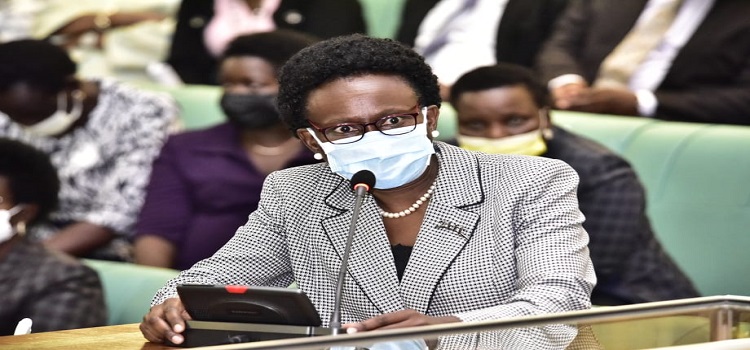The Health Minister, Dr Jane Ruth Aceng has listed 10 challenges that she said bedevils the healthcare system in Uganda calling for increased funding to streamline the sector.
In a presentation meant to enlist Parliament’s support in solving the healthcare problems facing the country, Aceng said increased financial allocation to the Ministry of Health will solve most of the sector’s problems.
Aceng listed shortages of “critical cadres such as specialists, anaesthetic officers, dispensers, pharmacists and theatre staff” and “inadequate financing to the sector” as the core issues that need urgent attention.
Other issues include the rising number of local governments that also increase pressure on already established health facilities requiring further investment in construction of new healthcare units, dilapidated health infrastructure that requires refurbishment and re-equipping and inadequate medical equipment at many health care units.
Aceng said lack of state of the art imaging equipment, no hospitals in many constituencies, inadequate staffing and a weak community health workers extension system are the issues that scream for immediate attention.
With the funding problems, the Ministry’s capacity to deal with epidemics is seriously impaired, always requiring running back to Parliament for more funds as opposed to having a financial plan to tackle such occurrences.
“The major challenge afflicting control of epidemics is lack of a dedicated budget line. All epidemics are managed through requests for supplementary funding which has a lengthy process and impairs timely planning,” she said, calling for the establishment of a specially dedicated fund to finance response to epidemics.
MP Ronald Evans Kanyike (NUP, Bukoto County East) said since the solution to the problems lies in increased funding, Parliament should allocate more to the sector.
“The solution is that there must be goodwill as far as budget allocation is concerned,” he said.
MP Santa Okot (PPP, Aruu North) said because of funding inadequacies, several districts in Northern Uganda continue to suffer the plague of nodding syndrome, a disease affecting children, and is characterized by persistent nodding and neuro-breakdown of victims.
To date, there hasn’t been a clear diagnosis of what the disease is and its causes.
“We have got about 5,000 children in Pader, Kitgum and possibly Omoro, who are going to perish because of that disease,” she said.
To MP Charity Bainababo (UPDF), army hospitals should be supported because they are an integral part of the healthcare system always serving the neighboring civilians, which in turn stress facilities originally meant for the soldiers.
“I wish to request the Ministry of Health that UPDF be given the status of a health district so that we get support [since we aid the civilian population as well],” she said.
Do you have a story in your community or an opinion to share with us: Email us at editorial@watchdoguganda.com













